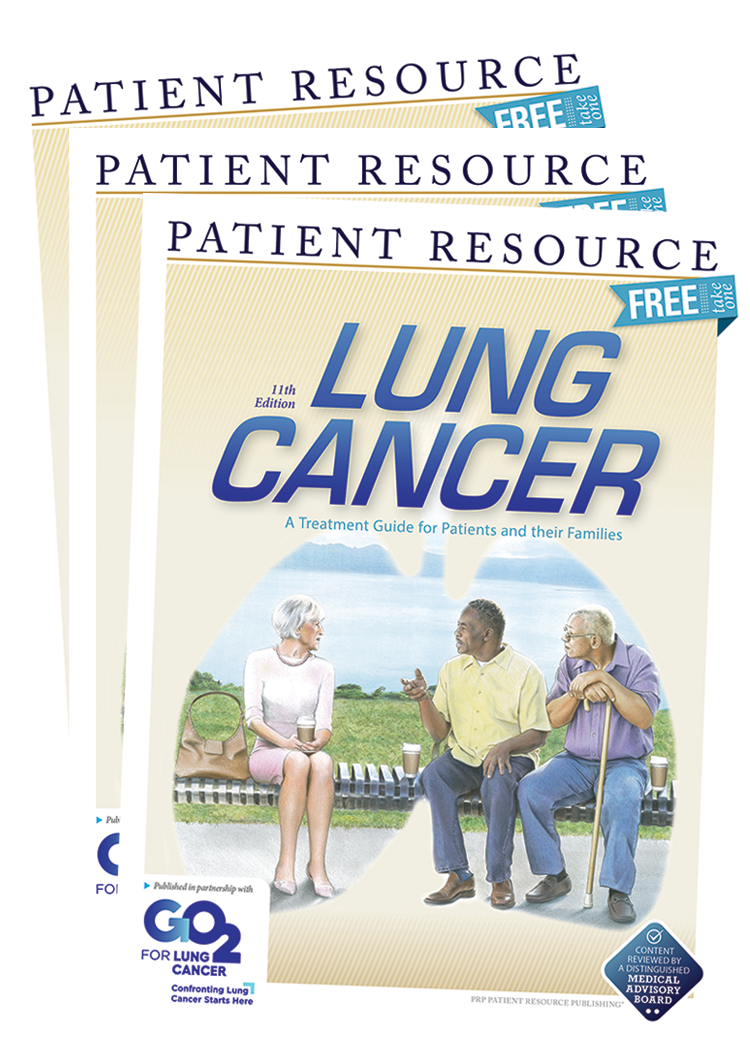Lung Cancer
Caregiving
Caring for someone who has lung cancer may be one of the most rewarding things you will ever do, but it could also be one of the most challenging. It requires patience, perseverance and flexibility. Every day can bring a new hurdle. Knowing how and when you are needed will help you be the most effective caregiver possible.
Start by taking care of some administrative items. Introduce yourself to the health care team, and get approved to receive and share HIPAA-protected information. This includes discussing medical information about your loved one in person, by phone, using the online portal, via telehealth (if available) or in other ways. Also, ask the team how they prefer to be contacted. Being proactive will set the stage for good communication and a strong relationship.
The Roles of a Caregiver
Learn about lung cancer. Because every diagnosis is unique, it is important to research your loved one’s specific diagnosis and recommended treatments, including molecular testing results and potential clinical trials. Ask your health care team about things you’d like to learn more about and anything that you don’t understand.
Be the medical liaison, which includes the following:
- Attending medical appointments in person or by phone or telehealth, if necessary. Ask questions and take notes. It’s difficult for one person to remember everything that is discussed. Provide transportation to appointments, if needed.
- Tracking and giving medications or treatments. Note side effects and symptoms, and share this information with the health care team. Know the serious situations that warrant contacting the team.
- Understanding how to operate breathing equipment, such as an incentive spirometer, inhaler or supplemental oxygen. Learn to use a backup oxygen tank in case of a power outage.
- Building a relationship with the pharmacist. These specialists are an excellent source of information.
Encourage activity. Even light exercise can help reduce fatigue and improve your emotional well-being.
Manage household tasks, such as laundry, cleaning, grocery shopping, cooking and lawn care. That may mean performing tasks yourself or asking others for help. Keep in mind your loved one may want to continue certain tasks, especially as a form of light exercise. It’s important not to “overhelp” because that an take away their sense of independence.
Update family and friends. Ensuring everyone hears the same information at the same time avoids inconsistencies and hurt feelings. Email or online updates are an easy solution.
Provide personal care. At times, your loved one may need assistance with bathing, dressing and other personal needs. Incorporate tools, such as shower bars, a shower chair or a handheld shower head, to help you both.
Organize insurance bills and paperwork using a system that is simple and easy to maintain. Additionally, work with your loved one to prepare an Advance Directive, Living Will, Will and Power of Attorney. Don’t let this alarm you. These are documents everyone should have, regardless of health status.
Assist your loved one with medication adherence especially when the doctor has prescribed several oral medications and schedules. Managing multiple medications and the timing can be challenging, so set up a system of reminders, calendars or checklists to help your loved one take the right dose of the medication at the right time.
Self-Neglect ... A Common Pitfall for Caregivers
A primary reason this role is so challenging is because caregivers are selfless and often overlook their own needs. Although that is noble, you must be kind to yourself or you will experience caregiver burnout, and you won’t be any good to your loved one.
Post this list where you will see it every morning – on the bathroom mirror or refrigerator – as a reminder to take care of your important, wonderful self.
How will I reduce my stress today? Keep up with your favorite hobby. Try journaling, crafting or deep breathing. Take a brisk walk, or just have some alone time to clear your head.
What is on the menu today? When you prepare nutritious meals and snacks for your loved one, make the same for yourself. If cooking brings you joy, get creative in the kitchen. For help planning meals, ask the health care team to refer a nutritionist.
Do I feel well-rested? Getting a good night’s sleep is important for your mind and body.
Is it time to make or go to any health care appointments? This includes your medical appointments and preventive screenings. You won't be an effective caregiver if your own health suffers.
Who can help with a task today? Create a list of jobs that can be done by others, such as grocery shopping, meal preparation, house cleaning, lawn mowing, snow shoveling, pet care and carpooling.
What type of exercise will I do today? Try yoga, stretching or using a treadmill. Even a 10-minute walk can rejuvenate your mind and your body.
Which friend should I connect with today? Though your schedule will likely be less flexible, make time to check in with friends and keep up relationships.
What advice can I get or give today? You can learn a lot from others who are in similar situations, and you have options: in-person support groups, online support, a therapist who has experience working with people who care for loved ones with cancer and your friends and family. Don’ forget to share your own wisdom!
Am I ready for something special? Pamper yourself occasionally. Get a massage, manicure or pedicure, or splurge with time away.



